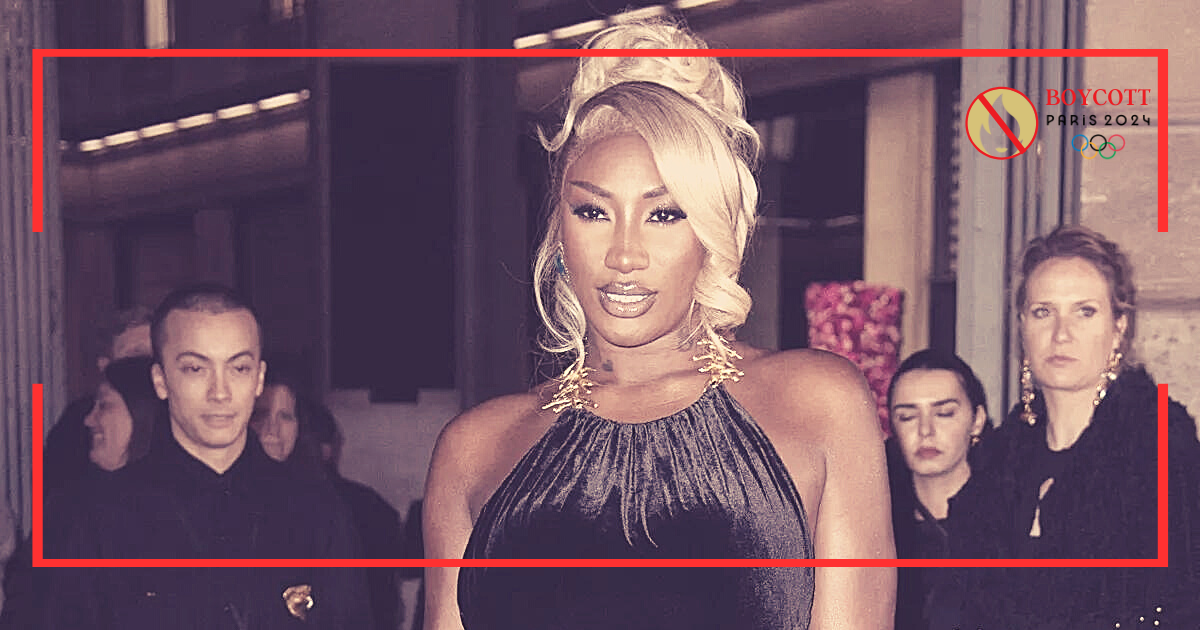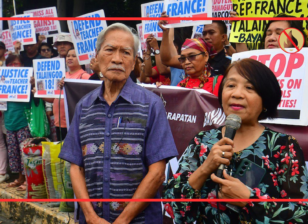Justice in tune: Paris Prosecutor investigates racism against Aya Nakamura
French police have launched an investigation into claims of racism against French-Malian pop artist Aya Nakamura in response to rumors that she may participate in the Paris Olympic opening ceremony. Even if the Olympics in Paris are still months away, the host nation has already taken first place in a category that it genuinely dominates: contentious racial dispute with a “made in France” aesthetic. The controversy surrounding unsubstantiated reports that Aya Nakamura would sing an Édith Piaf song in front of 300,000 spectators gathering along the Seine River for the opening ceremony of the Games was encapsulated in this way by public broadcaster France Inter.
Escalation of racism
Nakamura, 28, rose to fame throughout the globe with singles like “Djadja,” which has had almost a billion views on YouTube alone. She is the most well-known French female vocalist internationally since Piaf performed “La vie en rose,” making her one of the few French musicians whose songs are heard well outside the Francophone globe. She is also the proud face of Paris’s forgotten banlieues, or suburbs, which have given rise to many of the country’s most well-known athletes and musicians and will soon play host to the Olympic Village.
On paper, it makes perfect sense to cast her in the lead role in “the biggest show on earth.” However, others on the far right in France, who believe Nakamura is unsuitable to represent France, responded angrily to the idea itself. Government politicians have entered a discussion that has nothing to do with music as a result of the shock and confusion their occasionally racist comments have caused.
Legal action
The dispute stems from media allegations that Nakamura and President Emmanuel Macron met in the Elysée Palace last month and discussed performing a song by Edith Piaf. Neither party has acknowledged the rumors. At a far-right Reconquête party gathering, the singer’s name was jeered at. Eric Zemmour is a former commentator and presidential candidate who was found guilty of inciting racial hate.
“Future babies don’t vote for rap, nor for lambada, nor for Aya Nakamura: they vote for Mozart,” Zemmour said in a weird outburst. In response to the hate, Nakamura posted the following on social media: “You may be deaf and racist at the same time. That’s the reason you ache! Though I’m starting to dominate argument topics, what exactly do I owe you? Nothing at all. The Olympic organizing committee, which expressed its horror at the racist remarks directed against “the most listened-to French artist in the world,” supported the singer. Amid concerns that “attacking someone purely on racist grounds is unacceptable; it’s an offence,” Culture Minister Rachida Dati brought up the issue in the French National Assembly. Sports Minister Amélie Oudéa-Castéra also backed Nakamura on social media, telling her she had the support of the people.
Importance of the investigation
After receiving a complaint from the anti-racism advocacy group Licra, Paris prosecutors said that they were looking into claims of racial assaults against the pop artist. The elevation of Nakamura to the status of a “state subject” is seen by Karim Hammou and Marie Sonnette-Manouguian, co-authors of a book that documents 40 years of French hip-hop music, as a deliberate attempt to use cultural events to further the regressive, identity politics of the extreme right. Bettina Ghio, the author of many volumes on the vocabulary of French rap, the nation’s most popular musical genre but one that has long been disapproved of by politicians and the music establishment, adding that if Nakamura were White, there would be no such controversy.
Impact on society
Ghio brought up the example of French rapper Youssoupha, who is of Congolese origin, and how he faced similar abuse when his song “Ecris mon nom en bleu” was selected as the unofficial anthem of the French national team during the men’s Euro 2021 football competition. The far-right has targeted artists and athletes because of the color of their skin in the past, and the Nakamura controversy is not an exception, the speaker said, citing the frequent racist taunts directed at the ethnically mixed French teams that won the World Cups in 1998 and 2018. Nakamura blamed the false labeling of him as a rapper on discrimination based on race and class.
The potential boycott of the Paris Olympics 2024 reflects France’s ongoing struggle with racism, highlighted by the investigation into racial attacks against pop artist Aya Nakamura. Controversy erupted over rumors of her participation, exposing deep-seated biases. Such discrimination mirrors past incidents targeting artists and athletes of color, underscoring societal divisions and injustices.
Conclusion
In conclusion, R&B and the extremely danceable rhythms of Afrobeat and Caribbean Zouk are combined in Nakamura’s music. However, right-wing criticism of her art occasionally reflects the bigotry directed at France’s rap culture, which has been a catalyst for intense social critique for the previous thirty years.





